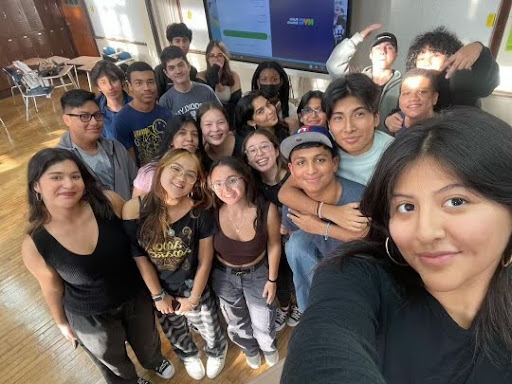Every other Wednesday, at the corner of Fulton Street and Fort Greene Place, members of the Progressive Labor Party (PLP) distribute their newspaper, Challenge, to Brooklyn Tech students.
Although a recent Survey poll indicated only 21% of Tech students actually read the paper, it is the topic of widespread conversation whenever copies of the latest issue make their way into the school. Yet, many questions regarding the paper’s origins remain unanswered.
The PLP is an anti-revisionist Marxist–Leninist communist party headquartered in Brooklyn that dates back to 1963 when it split from the Communist Party USA, another national organization with a similar platform, due to internal disagreements. The PLP peaked in influence and size in the 1960s and 1970s—an integral period during the Cold War—by organizing protests and publishing communist media.
The PLP originally published a magazine called Progressive Labor alongside Challenge in the 1960s, but it was phased out while Challenge was expanded and published online starting in 2003. In 1970, when it was exclusively on paper, the press run of Challenge was about 75,000, although many of the copies went unsold. The PLP also has several other publications, including their magazine The Communist, and podcast, “Challenge Radio.”
Of the Tech students who pick up copies of the Challenge, each have different takeaways from its writings. Mechatronics and Robotics major Byron Luong Tang (‘24) reads the paper for two reasons. “The first is to practice my Spanish because they have a section in Spanish, and the second is that I read it sometimes to just give me a laugh,” he said.
However, some take it for their enrichment. Environmental Science major Maya Bugo (‘25) admits that while she does take the paper “partially for entertainment,” she also takes it to expand her horizons. “I think if I give CNN or Fox the time of day, I should also give it to a different perspective,” she commented. She finds it important that smaller news outlets be heard, especially in a nation where six corporations control 90% of the nation’s news media.
Bugo feels that Challenge brings her new and unique perspectives that are not available in mainstream newspapers. “I appreciate their criticism of politicians for being very money-focused,” she explained, recalling an article that criticized Javier Milei, the new president of Argentina, for cutting many government programs—an action that Challenge described as “a vicious attack on the working class”.
However, Bugo does not find value in everything they write. “I don’t like some particular motifs they use in their writing,” she said. “KKKapitalism,” a play on words that compares capitalism to the Ku Klux Klan, is one of the recurring phrases with which Bugo takes issue. “I just don’t think you can compare a racist, terrorist organization to an economic system,” she explained. “It’s kind of misleading when they say things like that and they’re just using it to push their agenda.”
Black Studies 365 teacher Mr. Adam Stevens, who also reads Challenge to diversify his news consumption, disagrees with Bugo’s point about the wordplay. “I read a lot of news, and I find The New York Times’ phrases to be more misleading than this,” he remarked, referencing a Challenge headline that referred to migrant shelters as concentration camps.
He explained that there is a deeper level of analysis required when reading Challenge’s article. “Migrants and undocumented people in this country are subject to a different labor regime, and have their wages stolen,” said Mr. Stevens. “The idea that undocumented people might be working in conditions that we would call a labor camp doesn’t strike me as misleading or even problematic,” he concluded. This is just one example of the contentious topics that are discussed in Challenge.
Since its inception, PLP has received criticism from all sides of the American political spectrum. Aside from its frequent right-wing critics during the Cold War era, the PLP was also heavily criticized during the Civil Rights Movement of the 1960s for not supporting the Black Panther Party due to its nationalistic ideology.
Questions about the paper’s readership, target audience, and internal behaviors remain very vague. However, one thing that reigns true is that members of the Tech community have and will continue to engage with Challenge for a variety of reasons.








































